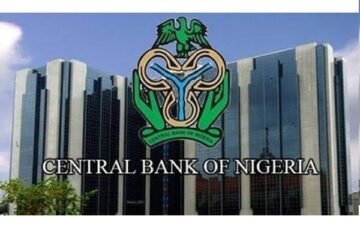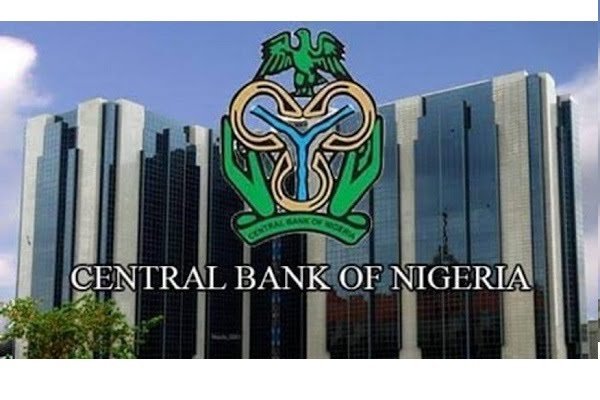The Nigeria Governors’ Forum (NGF) has expressed delight over the removal of Nigeria from the grey list of the Financial Action Task Force (FATF).
NGF’s spokesman, Yunusa Abdullahi, in a statement on Saturday, quoted the forum’s Chairman and Kwara State Governor, AbdulRahman AbdulRazaq as attributing the feat to the efforts of President Bola Tinubu, the 36 state governors and relevant institutions.
He quoted the NGF Chairman as saying: “We are very pleased with this outcome and proud to see Nigeria formally welcomed back into the global transparency community.
“Nigeria has handled this difficult situation with enormous grace and integrity and this green light attests to the trust and confidence in our financial systems and our leaders both at the national and sub-national levels.”
Abdullahi noted that the development came after years of thorough investigation and review of Nigeria’s financial systems.
He added: “This remarkable result was predicated on the diplomatic and political efforts of President Bola Ahmed Tinubu, governors of the 36 states of the federation, notable institutions like the Federal Ministry of Finance (FMF), Central Bank of Nigeria (CBN), Economic and Financial Crime Commission (EFCC) and the Nigeria Financial Intelligence Unit, (NFIU).”
The NGF spokeswoman recalled that the country was placed on the FATF grey list after the global body found deficiencies in Nigeria’s efforts at fighting money laundering and terrorism financing.
Abdullahi said: “Since then, through a combination of legislative reforms, institutional strengthening and enhanced inter-agency coordination, Nigeria has demonstrated sustained political will to achieve full compliance.
“Within that period, key reforms have been achieved including operationalization of the beneficial ownership register, improving of corporate transparency and accountability.
“Also, enhanced capacity of intelligence, law enforcement and regulatory agencies in detecting, analysing and prosecuting complex crimes has been achieved.
Read Also: Diri, Fubara, Dauda, Dickson, others to get First Daily Excellence Awards
“Throughout this period, the NFIU, CBN, the NGF, representing the sub-national government, and Ministry of Finance availed FATF all the necessary support in providing information to all inquiries which led to this clearance.
“The Nigeria Governors’ Forum, NGF is fully committed to maintaining the highest ethical financial standard in all its governance and will continue to uphold a culture of transparency, accountability and integrity,” he said.
In a related development, the Chairman, House Committee on Financial Crimes, Rep. Ginger Onwusibe, has also commended the President Bola Tinubu-led administration and relevant institutions on Nigeria’s ‘historic’ exit from the FATF grey list.
Onwusibe gave the commendation in a statement issued in Abuja, on Saturday, NAN reports. The lawmaker, who described the exit as a “national victory for integrity, resilience and inter-agency collaboration,” commended the Federal Government for its political will to address financial indiscipline in the country.
“I commend the Nigerian Financial Intelligence Unit (NFIU), Economic and Financial Crimes Commission (EFCC), Independent Corrupt Practices and other Related Offences Commission (ICPC), Federal Inland Revenue Service (FIRS) and Central Bank of Nigeria (CBN),
“I also commend the Corporate Affairs Commission (CAC), other law enforcement/regulatory agencies and the Federal Ministry of Justice for their dedication and cooperation throughout the reform process,” he said.
According to the lawmaker, the feat is a product of years of hard work and synergy among the institutions.
“It restores global confidence in Nigeria’s financial system and demonstrates that our country can meet the highest international standards of transparency and accountability,” he said.
The lawmaker hailed the National Assembly for passing key reforms, including amendments to the Money Laundering (Prevention and Prohibition) Act, and others which had strengthened the country’s legal framework to combat money laundering.
Onwusibe, who also commended his committee for the achievement through oversight functions on both NFIU and EFCC, urged stakeholders to sustain the momentum to ensure Nigeria never returned to the list.
Related News
CBN lists benefits of Nigeria exiting FATF grey list
Govs hail CBN’s stabilisation efforts, pledge support for monetary reforms
Govs commend CBN’s stabilisation efforts, pledge support for monetary reforms
He reaffirmed the committee’s commitment to continuous legislative oversight and institutional support.
Meanwhile, the Central Bank of Nigeria (CBN) has said Nigeria’s removal from the Financial Action Task Force (FATF)’s grey list will strengthen investor confidence, ease cross-border transactions and restore the country’s reputation as a credible financial jurisdiction.
In a statement signed by its Acting Director, Corporate Communications Department, Hakama Sidi Ali, the CBN, on Saturday, said the delisting will lower the cost of correspondent banking and international transactions, facilitate smoother trade and investment flows, and make Nigeria more attractive to foreign investors and development partners.
The CBN described the development as a significant milestone that will reduce perceived financial risk and support the nation’s broader efforts to deepen financial inclusion and economic growth.
The bank added that Nigeria’s removal from the grey list will yield tangible benefits for businesses and households alike, lowering compliance costs, improving access to international finance, and making cross-border transactions faster and more affordable.
Over time, these gains should translate into smoother trade settlements, quicker remittance inflows and more predictable access to foreign exchange, said the CBN, adding that the measures will enhance livelihoods, support enterprise growth and deepen financial inclusion.
The CBN said it played a central role in the process by enhancing supervision, governance and transparency across the financial system.
It explained that oversight of financial institutions was strengthened through updated anti-money laundering and counter-terrorism financing (AML/CFT) regulations, risk-based supervision and fit-and-proper assessments.
The CBN Governor Olayemi Cardoso was quoted in the statement, praising the collective effort. “This is an important achievement for Nigeria’s financial system. Our strengthened AML/CFT framework and closer supervisory engagement with financial institutions have helped restore confidence internationally,” he said.
He added that, “We remain committed to sustaining these reforms, deepening transparency, and working with domestic and international partners to prevent illicit financial flows and protect the integrity of our financial system.”
In addition, compliance reporting and monitoring were also expanded across remittance channels, bureaux de change and fintech platforms to improve traceability and transparency.
The bank enhanced inter-agency data-sharing and enforcement coordination between itself, the Nigerian Financial Intelligence Unit (NFIU), the Economic and Financial Crimes Commission (EFCC) and other law enforcement bodies.
The CBN also implemented market governance tools, including the Foreign Exchange Code (FX Code) and the Electronic Foreign Exchange Matching System (EFEMS), which further improved the integrity and transparency of the financial markets.
The bank said these measures were implemented alongside legal and operational reforms undertaken by other competent authorities and were crucial in addressing the strategic deficiencies identified by FATF and its regional body, the Inter-Governmental Action Group Against Money Laundering in West Africa (GIABA).
The CBN credited coordinated action across government institutions for the successful outcome, commending the NFIU for leading technical engagement with FATF, law enforcement agencies for enforcement work, and the Office of the Attorney-General and the National Assembly for the legislative amendments that enabled compliance with FATF requirements.
The bank said it would not relent after the delisting. “Sustaining compliance with global AML/CFT standards is a continuous process,” the statement said, adding that the CBN will continue to work closely with AML/CFT competent authorities to ensure that the gains are consolidated and that Nigeria avoids any future reclassification.
The CBN also argued that the FATF decision reinforces a broader restoration of global confidence in Nigeria’s economic management. It pointed to recent international assessments that reflect improving external balances and credibility in policy execution, developments the Bank said are consistent with the momentum from the delisting.
The statement identified the constructive credit outlook from major rating agencies and the International Monetary Fund’s 2025 Article IV findings, which noted improved reserve adequacy, greater transparency and a reform agenda increasingly aligned with global standards.
The bank urged all financial institutions to remain diligent and to sustain high standards of compliance, corporate governance and internal controls so the country can fully reap the benefits of delisting.
It stressed that improvements in correspondent banking relationships and reduced transaction frictions should translate into easier international trade payments and more predictable access to foreign financial services for exporters, importers and remitters.














